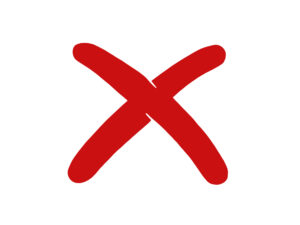Is Tommy Hilfiger ethical and sustainable?
Tommy Hilfiger, an American fashion company owned by PVH Corp, is given a low Ethical Rating by The Good Shopping Guide. Unfortunately, this brand receives a low Good Shopping Guide Ethical Score in our Ethical Fashion Retailers Ratings Table and has therefore not yet met our minimum benchmark.
In what areas does Tommy Hilfiger perform poorly?
For our Organic criteria, Tommy Hilfiger does not score well; although the brand claims that some of its products are made using certified organic cotton, it doesn’t say from whom this certification comes, so our researchers were unable to verify the validity of this claim.
Also detrimental to animals is Tommy Hilfiger’s use of animal skins in the brand’s products. Though PETA released a statement testifying that the parent company, PVH Corp, has stopped using the skins of crocodiles, snakes, ostriches and other exotic animals, PVH mentions its exotic animal skin sourcing guidelines in its Animal Welfare Policy statement. Vegans, vegetarians and those against the use of animal skins for fashion may want to give this brand a wide berth because of this obscurity.
In what areas does Tommy Hilfiger perform well for its ethics and sustainability?
Tommy Hilfiger performs well for its comprehensive Code of Conduct, which means that consumers, investors and independent research groups like The Good Shopping Guide can hold this brand to higher standards, and call out any hypocrisy, code-breaking or policy violations.
Tommy Hilfiger’s Environmental Report describes its “Forward Fashion” strategy, which has many different goals. They have a page for Tommy Hilfiger specifically, proving that this brand is included in the targeting.
How can the Tommy Hilfiger brand improve its Ethical Rating?
The Good Shopping Guide’s score results from 15 ethical criteria in relation to Tommy Hilfiger. To reach our Ethical Benchmark and qualify for our Ethical Accreditation, Tommy Hilfiger has several issues to deal with, including vague Animal Welfare claims and a lack of traceability in its worker supply chain.
If your fashion brand values ethics and sustainability, why not check out The Good Shopping Guide’s Ethical Accreditation? Increase customer and investor confidence and stand out from the greenwash.
Ethical performance in category
GSG score
GSG category benchmark
Ethical Rating
Environment
-
Environmental Report
Good
-
Organic
Poor
-
Better Cotton Initiative
Good
-
Fossil Fuels
Good
Animal
-
Animal Welfare
Good
People
-
Armaments
Good
-
Code of Conduct
Good
-
Political Donations
Poor
-
Ethical Trading Schemes
Poor
-
Human Rights
Poor
-
Human Rights+
Poor
Other
-
Ethical Accreditation
Poor
-
Other Criticisms
Poor
= GSG Top Rating = GSG Middle Rating = GSG Bottom Rating
